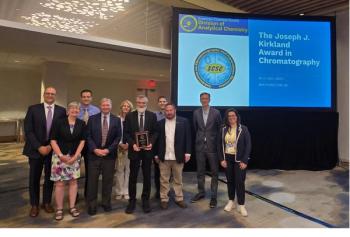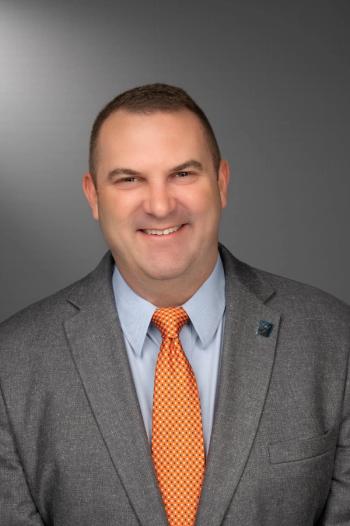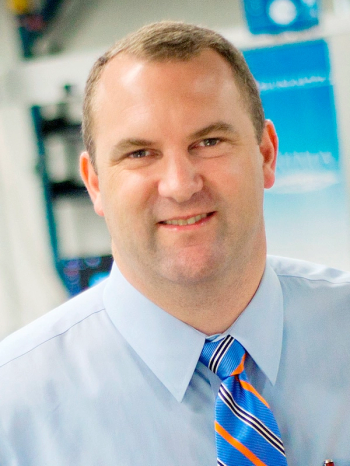
This LCGC blog highlights the ACS SCSC’s initiatives, events, and awards that connect and support the global separation science community across academia, industry, and government.

This LCGC blog highlights the ACS SCSC’s initiatives, events, and awards that connect and support the global separation science community across academia, industry, and government.

Caitlin Cain shares insights from the Lindau Nobel Laureate Meeting, exploring AI's role in chemistry, sustainability innovations, and the importance of science advocacy.

Lina Mikaliunaite shares her journey from studying liquid chromatography as an undergraduate to working in industry with GC×GC, highlighting the mentors, research experiences, and career steps that shaped her path in separation science.

In this edition of The LCGC Blog, Jim Grinias of Rowan University asks: How can analytical chemists effectively communicate their work to non-experts, both in a native language throughout their everyday lives and while traveling abroad?

In this edition of the LCGC Blog, Zacariah Hildenbrand, Melissa Giguere, and Kevin Schug discuss the complexities of cannabis regulations, forensic testing challenges, and the risks of unregulated products in the evolving landscape of cannabis forensics.

In this month's edition of the LCGC Blog, discover how weighted least squares regression enhances quantitation accuracy in analytical chemistry, particularly for low-concentration analytes in HPLC.

In this month's edition of The LCGC Blog, Andre Striegel discusses where macromolecular scientists around the world can convene and share their insights.

Here is some of the most popular content posted on LCGC International this week.

In this edition of the LCGC Blog, Amber Hupp of the College of the Holy Cross reflects on her childhood and talks about her journey recreating the scents from that long past.

In this edition of The LCGC Blog, Jonathan Shackman discusses what factors to consider when choosing a mobile phase for liquid chromatography (LC) procedures.

In the first LCGC Blog of 2025, Caitlin Cain of the University of Michigan highlights the divide between gas and liquid chromatographers, and why both types of techniques should be in the same conversations.

In this LCGC Blog, Katelynn Perrault Uptmor discusses her time teaching undergraduates separation science, and what she and her students have learned through their time together.

The American Chemical Society’s National Historic Chemical Landmarks program highlights sites and people that are important to the field of chemistry. How are analytical chemistry and separation science recognized within this program?

In this LCGC Blog, Daipayan Roy and Muhammed Qamar Farooq of Amgen discuss the history and impact of supercritical fluid chromatography (SFC) throughout the years.

In this LCGC Blog, Kevin Schug discusses the potential machine learning has in helping predict physicochemical properties of molecules and optimizing chemical analysis processes.

In this LCGC Blog, Daipayan Roy and Muhammed Qamar Farooq of Amgen discuss the history and impact of supercritical fluid chromatography (SFC) throughout the years.

In this edition of The LCGC Blog, André Striegel provides advice on how to prepare for your first talk or presentation at a scientific conference.

In this edition of the LCGC Blog, Amber Hupp of the College of the Holy Cross provides advice for aspiring analytical chemists and shares accounts of other professionals.

In this edition of The LCGC Blog, Emanuela Gionfriddo discusses the two world-class scientists and trailblazer women in separation chemistry and the awards they received at Pittcon 2024.

Are you a chromatographer or a chromatography user?

In this edition of "The LCGC Blog," Jonathan Shackman discusses the differences between chromatographers and chromatography users, as well as advancements that have made chromatography a more accessible field.

Need help reaching your full potential as a separation scientist? A career development plan can help set a clear direction to reach your goals more effectively. In this LCGC Blog, we will cover why having a plan is important, what makes a good plan, and how to best use it.

In this LCGC Blog, the author explores stationary phases that incorporate permanent or induced charges within, or alongside, hydrophobic alkyl silica type bonded ligands.

In this LCGC Blog, Kevin Schug shares his plans for the future as a Fulbright–Palacky University Distinguished Scholar in the Czech Republic, and discusses why it is important to share analytical chemistry with communities around the world.

In this LCGC Blog, Muhammad Farooq shares some tips for entering different careers within the analytical chemistry industry.

Are you interested in ChatGPT's vast potential? Or are you getting tired of reading or hearing about ChatGPT?

In this LCGC Blog, André Striegel discusses common rumors about what and what not to do at academic conferences, to educate first-time attendees on what to expect.

This past spring, we convened a panel of six phenomenal separation scientists, where they gave their best advice for separation scientists, newcomers and veterans alike.

Are you interested by ChatGPT's vast potential? Or are you getting tired of reading or hearing about ChatGPT? If the latter, this blog post might give you some tips and tricks on taking advantage of ChatGPT while avoiding its application beyond its intended scope.

ExTech is the largest conference dedicated to extraction technology, a field within separation chemistry that has seen remarkable growth over the past three decades.